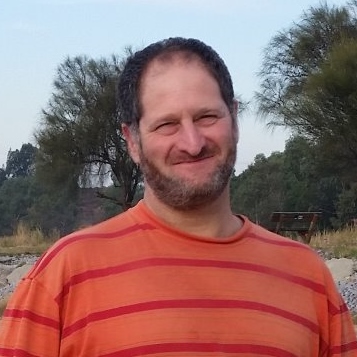News
Ex-South African helps dads with divorce
Getting divorced is traumatic, but for men, it can be particularly destructive. All too often, men lose contact with their children following a divorce. They also generally don’t have the levels of social integration women do, or seek the help they need.

JULIE LEIBOWITZ
It’s no surprise that some male divorcees can be suicidal, and are prone to alcoholism, weight gain, and mental-health issues.
In South Africa, revisions made to the Children’s Act have to a certain extent levelled the playing field for dads. The law now gives dads the same rights and responsibilities as moms, as well as the right to maintain contact with their children, unless a court determines otherwise.
“The court’s decisions are entirely based on the interests of the child,” says Trudi Bisset of the Family Life Centre in Johannesburg. The law also allows for children to reside with one parent, or to share residency with both parents, once again depending on the child’s/children’s needs.
However, many fathers still face bias by judges and in society, including “boundless allegations, prolonged lawsuits, and a deliberate indifference towards the law”, according to the local Law For All website. There is also an outdated concept called the “tender years” doctrine, which presumes that children under the age of four should be under their mother’s protection.
“Though the law is changing, there is still the assumption that the mother will look after the children following a divorce and have most of the responsibility,” says Akiva Quinn, an ex-South African who lives in Melbourne, Australia. Quinn stepped into the counselling world 12 years ago after experiencing a hostile divorce himself.
Following unsuccessful mediation with his ex-wife, Quinn went to family court to sue for a greater share of custody of his only child. He won six nights every two weeks, and managed to build a strong relationship with his son in his formative years. They remain close. Quinn’s experience motivated him to support other divorced fathers to be the best men and fathers they could be.
He helped to start DadsLink, now a YMCA-based programme in the Australian state of Victoria, run in conjunction with Relationships Australia and the Life Is Foundation.
“DadsLink works with fathers who are excluded for various reasons,” Quinn says. “Fathers must fight to have something close to equal time with their children. It’s not so much about fighting for rights, it’s about working constructively with the circumstances to reach acceptable solutions.”
DadsLink helps fathers to integrate socially, and strengthen their relationships with their children. It supports them and organises regular activities where they can do things together. DadsLink also helps dads (and moms) to work out shared parenting arrangements – negotiating and setting up workable schedules.
Critically DadsLink provides ongoing support after divorce. This is often what is most needed by all the members of the family, who face long periods of adjustment.
“Fathers often don’t have enough social networks,” Quinn says. “They can have barriers to involvement if they don’t know others. It’s also about harm minimisation. There are risks around separation, such as strained inter-parent or parent-child relationships; the exclusion of fathers; suicide – one of the highest suicide demographics is separated men. There is also the issue of the economic hardships experienced by single moms.
“We need to support and educate men regarding conflict and separation management. Some men are not comfortable with their emotions and sharing their feelings.”
Men also need help with parallel parenting – parenting separately but with some kind of mutual schedule – which can be formal or informal. “Shared parenting is good for dads and their kids. It’s also good for moms, as it shares the burden. But it’s often difficult to share parenting with your ex,” Quinn says.
Regarding active parenting, he asks, “How many activities build precious family connections?” DadsLink holds monthly activities for dads, kids, and families that are “hands-on” like pool days, zoo visits, or watching sport, which gives fathers the opportunity to be engaged parents. But, he admits that it’s “not that easy to get dads to come out and play”.
As DadsLink Activities Co-ordinator, Quinn also runs a monthly support group called the “Dads Gatherings” and a one-day retreat that discusses themes such as self-care, social connection, life skills, and social skills, relationships with children and community, and “how to be your own friend”.
A similar kind of ongoing support is offered in South Africa by the Mankind Project (MKP), which helps men to make the difficult transition into a new sense of purpose and healthy mature manhood. Some of them are divorcees who are “at a crisis point in their life”, says Kevin Rudham, a coach at the organisation, who says Mankind completely changed his life.
“How do you go through a divorce without feeling angry or rejected?” he asks. “Can you own your role in it? Also, what’s really important now, and what are you going to do to make it happen?” Men often feel alone at this time”, and have been taught not to share their deeper emotions because “cowboys don’t cry”. It makes it very hard to ask for support. MKP men sit in small groups, listening, supporting and challenging each other to look with fearless honesty at their life.
“We don’t know what real masculinity looks like anymore. Young men and boys see stereotypes of ‘real men’ in film and media, and in the absence of healthy role modelling, try to be just like them. Perhaps we are lucky enough to have a great man in our lives, but, in general, there is a lack of role models and mentors for boys and men. We need to help men to find the mature masculine inside of themselves, their authentic true self.”